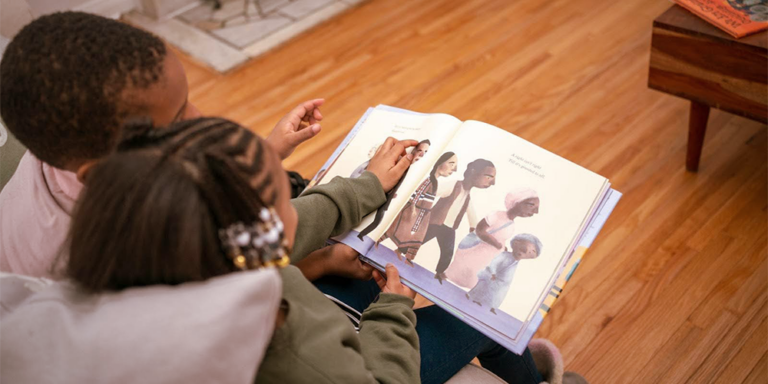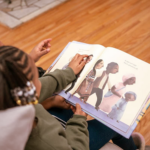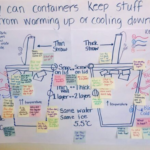Classroom and school gardens are amazing hands-on concepts for student engagement! From tiny sprouts to blossoming flowers and tasty vegetables, gardens transform learning spaces into outdoor classrooms that cultivate a multitude of skills and healthy habits. Plus, let’s not forget the benefits of playing in the dirt! Here are three fun facts about classroom and school gardens.
1. They engage our senses!
Classroom gardens have the unique ability to engage all five senses, making learning an immersive and multi-dimensional experience! Students can watch the growth and development of plants over time; learn to identify different plants by their smell; experience the different textures of plants, such as the smoothness of a rose petal or the sharp points on a cactus; identify different birds and animals by their sounds; and analyze and compare the taste of garden vegetables to veggies from the stores.
2. They can be cross-curricular!
Classroom and school gardens are fantastic spaces to plan project-based learning opportunities. Here are examples of how a garden can bring real-life learning to a variety of subjects.
| K-2 | Grades 3-5 | Grades 6-8 | Grades 9-12 |
| Science: Plant parts, lifecycles, weather, insects. Math: Counting, measuring, patterns. Language Arts: Vocabulary, storytelling, journaling. Art: Nature drawing, seed art. | Science: Photosynthesis, soil, ecosystems, experiments. Math: Area, geometry, data analysis. Language Arts: Descriptive writing, research, persuasive writing. Social Studies: History of agriculture. | Science: Plant anatomy, genetics, environmental science. Math: Proportions, financial literacy, data analysis. Language Arts: Technical writing, argumentative essays. Social Studies: Food systems, community impact | Science: Botany, chemistry, environmental science. Math: Budgeting, modeling. Language Arts: Food writing, research papers. Social Studies: Urban agriculture, policy. |
3. There’s financial support available!
The following organizations are starting points when seeking funding for a school or classroom garden:
- KidsGardening.org: They have a whole section dedicated to grants and grant application support.
- Whole Kids Foundation School Garden Grant Program: Offers grants to support new and existing school gardens.
- Captain Planet Foundation: Project Learning Garden grants support to school gardens that incorporate environmental stewardship.
- The Scotts Miracle-Gro Foundation: Focuses on community garden projects and garden-based education.
- Remember local resources, too!
- State Departments of Education: Often have funding resources specific to your region.
- Community Foundations: Support initiatives that benefit local areas. Search online for foundations near you.
- Businesses and Corporations: Check companies in your area that focus on sustainability or education, like the local garden store, or even Whole Foods!
Classroom and school gardens are about more than just plants – it’s about cultivating curiosity, wonder, and a deep appreciation for the natural world. Just think: you can grow lifelong stewards of the environment and champions of green spaces! Roll up your sleeves and invite your students to experience the joy of growing, alongside their learning.
About the Author

Betsy Butler (she/her) is a Professional Learning Specialist at Teaching Channel. She holds a B.A. in English, a Master’s in Education, and has been teaching since 1992. Betsy uses her three decades of teaching experience to write and revise our courses while selecting the perfect accompanying texts. Her specialty areas include ELA, special education topics, behavior management, and mental health.
Fun Fact: Betsy’s daily conquest is solving the New York Times crossword puzzle!






